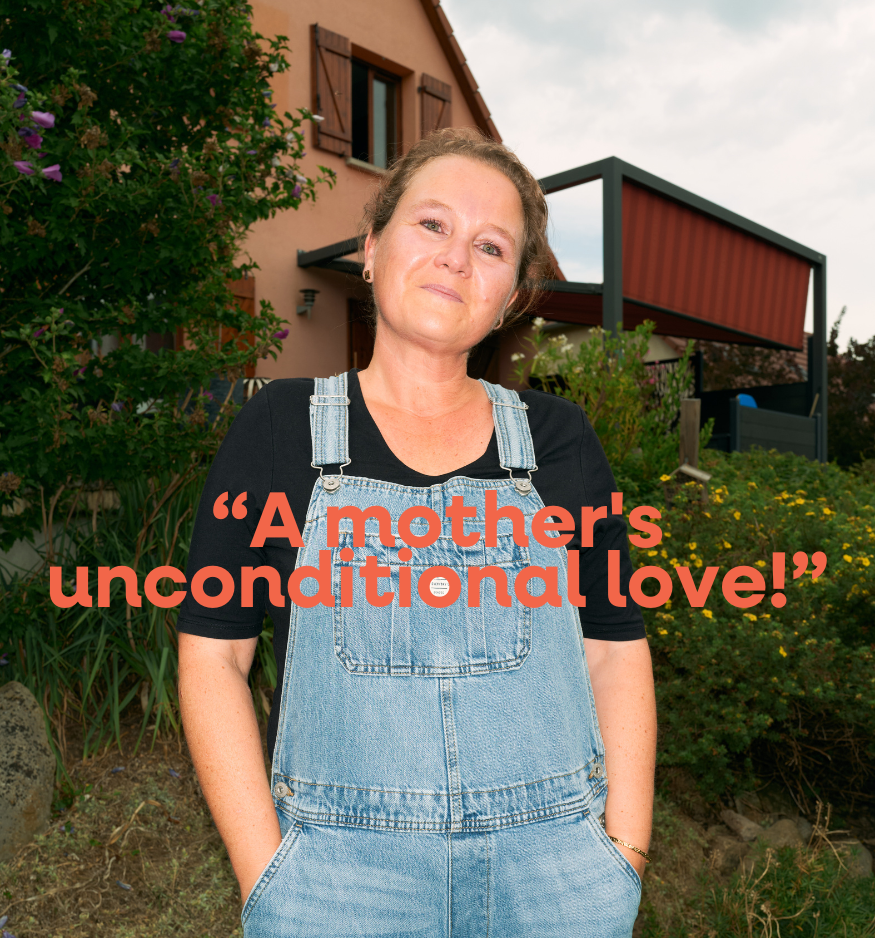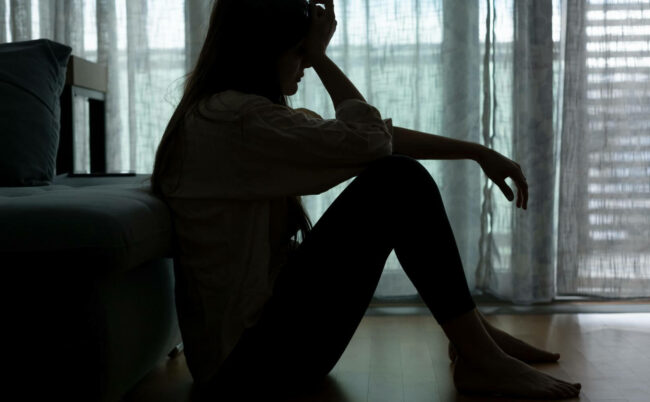There postpartum depression is a form of depression that occurs after the birth of a child. Unlike the baby blues, which is a temporary state of sadness and anxiety that can occur in the days following childbirth, postpartum depression is more intense and lasting. It can seriously affect the mental and emotional well-being of new parents and even compromise their ability to care for their child and themselves.
What are the symptoms of postpartum depression?
THE symptoms of postpartum depression may vary in intensity, but generally include:
- a sadness deep and persistent;
- a loss of interest for usual activities;
- a extreme fatigue and a lack of energy;
- sleep disorders, both insomnia and excess sleep;
- feelings of guilt or worthlessness;
- of the difficulty bonding with the baby after pregnancy;
- thoughts of harming yourself or your child;
- Appetite disorders, both loss and increase.

What’s the difference with the baby blues?
THE baby blues (or third day syndrome) is a temporary state sadness, anxiety and irritability that many new mothers experience.
It generally occurs a few days after giving birth and disappears in one to two weeks. Unlike postpartum depression, the baby blues are lighter and more passenger.

The baby blues affects approximately 80% of women, so you are not alone! These symptoms include mood swings, crying for no apparent reason, and feeling overwhelmed.
Postpartum depression in fathers
Although less discussed, postpartum depression can also touch fathers. About 1 in 10 fathers suffer from postpartum depression.
THE symptoms are similar to those observed in mothers and include feelings of sadness, fatigue, social withdrawal and mood disorders. Major life changes and new responsibilities can be just as overwhelming for fathers.

Causes of postpartum depression
The causes of postpartum depression are complex and often multifactorial. But among the main factors, we find the hormonal changes. Indeed, after childbirth, hormone levels (estrogen and progesterone) drop suddenly, which can trigger depression.

On the other hand, there may also be personal or family history of depression. For example, a genetic predisposition can increase this risk.
Another cause can also be stress and anxiety linked to new motherhood. Responsibilities and sleep deprivation can contribute to the development of postpartum depression. Furthermore, we also note that lack of social support or family plays a crucial role in postpartum well-being.
What are the possible consequences?
If left untreated, postpartum depression can have serious serious and lasting repercussions. New parents may have difficulty establishing an emotional bond with their baby, which can compromise the child’s emotional development in the long term.

For example, studies have shown that children of depressed parents can present with delays in their emotional and social development, as well as behavioral problems.
THE relational tensions can also intensify, affecting not only the relationship with the partner, but also interactions with other family members.
Furthermore, a untreated postpartum depression also increases the risk of developing recurrent depression in the future. According to research, women who have experienced postpartum depression are more likely to experience depressive episodes during a future pregnancy or at other times in their lives.

In more severe cases, postpartum depression can also lead to suicidal thoughts or self-harming behaviors. It is therefore crucial to recognize these signs and immediately seek a professional support.
Early and appropriate management of postpartum depression can not only improve maternal mental well-being but also promote a healthy and positive family environment for the health and development of children.

Treatments for postpartum depression
Postpartum depression is a treatable condition. There are several effective options to help women overcome this difficult period. First of all, don't stay alone, talk about it.
Start therapy
Cognitive-behavioral therapy (CBT) or interpersonal therapy are particularly recommended for treat postpartum depression.
CBT helps identify and modify negative thoughts and destructive behaviors associated with depression. Additionally, studies have demonstrated that CBT can significantly reduce depressive symptoms in women suffering from postpartum depression.

Find the right psychologist
To find the psychologist adapted to your needs, you can use the Domy platform. It is a platform in French mental health created by Mariane Cam, trained psychologist.
After responding to a pre-diagnostic questionnaire of around fifteen questions, 3 profiles of psychologists who correspond more than 75% to your needs will be offered to you.
Take medication
If necessary, antidepressants may be prescribed to treat postpartum depression. It is crucial to favor a psychiatrist for this type of treatment rather than a general practitioner.
Medication must, however, be considered as a last resort solution for your health. But be careful, you must carefully evaluate the potential benefits in relation to the risks for mother and baby.

Combine psychological follow-up with consultations with the psychiatrist allows you to share your feelings and find together solutions adapted to your situation.
Participate in support groups between mothers
Participate in postpartum depression support groups can be extremely beneficial. These groups provide a safe space to share experiences, emotions and concerns with other parents who are experiencing similar situations.
The emotional support received can reduce feelings of isolation and help build stress and emotion management skills.
Each treatment option can therefore be adapted according to the needs of every mother and his personal context. It is essential that parents feel supported and encouraged to seek help at the first signs of postpartum depression.
Preventing postpartum depression
Se mentally prepare the challenges of parenthood and surround yourself well can reduce stress and anxiety.
Find out about the postnatal period
Acquire in-depth knowledge of physical and emotional changes that occur after childbirth can help prepare better and reduce anxiety.
Episiotomy, lochia, urinary leakage, trenches, return of diapers…so many new things that can sometimes be frightening!
By understanding what is normal (or not) during this period and difficulties that may arise, you will be able to feel more in control and better prepared.

More concretely, you can, for example, participate in prenatal information sessions organized by maternity wards, read about the experience of other parents and openly discuss your expectations with your partner to best anticipate emotional changes.
Maintain strong ties with family and friends.
New parents should not hesitate to ask for help when needed. Research from the University of California has shown that social support significantly reduces the risk of postpartum depression.
Having loved ones to rely on can provide a valuable emotional support and help get through difficult times.

Take care of your body
A young mother needs recovery physical and mental after childbirth. Through a balanced diet, sufficient rest and kit suitable for postpartum, it is possible to quickly find a good condition and health.
Discover the Emy postpartum kit
To conclude, by taking preventive measures and with a adequate psychological preparation, new parents can reduce the risk of postpartum depression and strengthen their resilience. Prepare yourself physically, emotionally and socially to welcome a newborn can make all the difference in your parenting experience!






